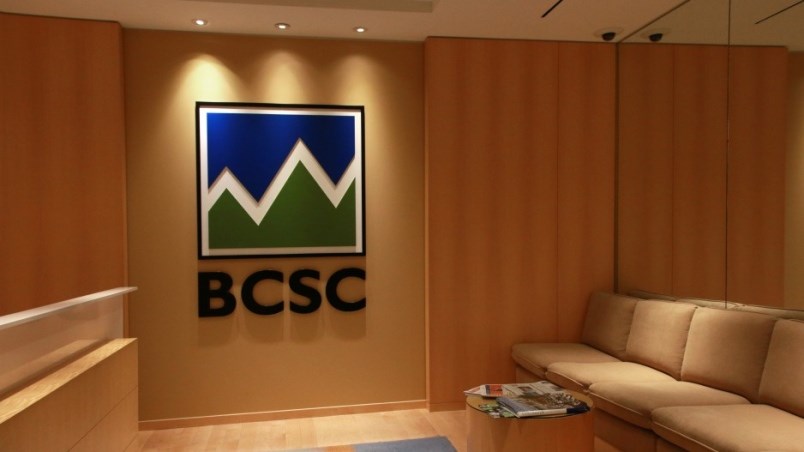The B.C. Supreme Court has ruled freeze orders against properties and bank and brokerage accounts issued by the B.C. Securities Commission against public market participants are constitutional.
The commission was challenged by dozens of stock promoters or purported consultants – known as the Bridgemark Group – who were once subject to freeze orders against 55 accounts and 19 properties, dating back to September 2018.
While the commission has since lifted most of those freeze orders and released most of the Bridgemark Group from a future hearing, the constitutional challenge lingered until Justice Veronica Jackson’s ruling July 27.
On April 28 BCSC , leaving just four individuals, including junior of BridgeMark Financial Corp., to face civil charges of insider trading and/or conduct contrary to the public interest. The commission has since lifted most of those freeze orders, which are just one chapter in a longstanding and ongoing dispute that includes a civil class-action lawsuit against the group by retail investors.
The group had argued in court that the freeze orders were an unconstitutional invasion of privacy under Section 8 of the Canadian Charter of Rights and Freedoms.
“Section 8 of the Charter applies where a person has a reasonable expectation of privacy in the object or subject matter of the state action and the information to which it provides access,” explained Jackson.
The purpose of a freeze order is “to preserve property for persons who may have common law or statutory claims to or interests in it”
Jackson stated that a freeze order “does not produce any information or evidence that furthers an investigation,” adding, “What the Commission is ‘really after’ in directing a Freeze Order is the preservation of the Property, and that is all.”
Jackson noted freeze orders are not publicized (they only came to light through the group’s contestation of them) and furthermore, “Persons who enter the highly regulated securities market—those that issue, sell, and buy—are taken to, or are deemed to, know and accept the nature of the regulated state action and ‘the rules of the game’ and as such may be found to have a low expectation of privacy in the information and Property covered by such regulation.”
“I find there is no reasonable expectation of privacy in the funds, securities, exchange contracts, or other property capable of being the subject of a Freeze Order under s. 151 of the Securities Act. As a result, s. 8 of the Charter is not engaged.,” the judge concluded.
A hearing is scheduled in November 2022 for Jackson (BridgeMark Financial Corp. and Jackson and Company Professional Corp.), Justin Edgar Liu (Lukor Capital and Asiatic Management Consultants Ltd.), Cameron Robert Paddock (Rockshore Advisors Ltd.) and Robert John Lawrence (Tavistock Capital Corp.) — who are now alleged to have performed insider trading and/or conducted themselves contrary to the public interest as directors.
“Between February and August 2018, the respondents allegedly took part in a scheme involving nine issuers that raised $50.8 million through 12 private placements,” stated BCSC in an update in May. “The issuers kept only a small portion of those funds. They paid most of the remaining funds to consultants as prepaid consultant fees, despite the fact that little or no consulting work was done to warrant those fees.
“Some of the consultants purchased shares of the issuers through a consultant exemption, so as a result, they could sell them immediately without a hold period.”
Liu, Jackson and Paddock plus Lukor, BridgeMark, Tavistock and Rockshore “bought or sold their shares with the knowledge that the issuers kept only a small portion of the funds they raised, a material fact or change that wasn’t disclosed to the public,” the BCSC stated, alleging that by doing so, they committed insider trading. The BCSC also alleges that Liu did not file any insider reports for buying or selling shares of two issuers.
The BCSC’s allegations have not been proven.



